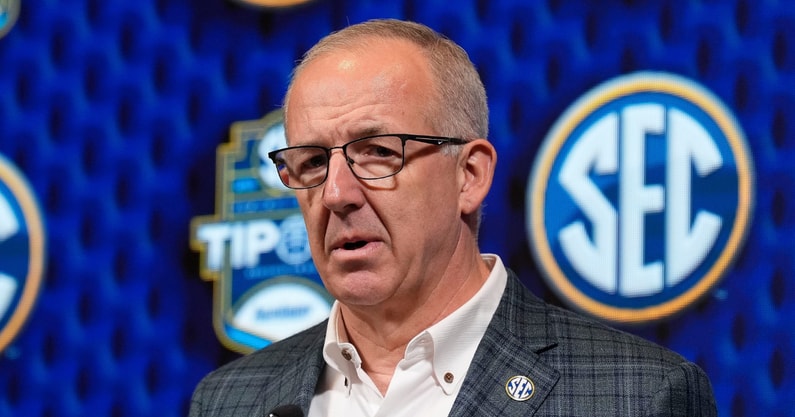
College football has always thrived on tradition — the bitter rivalries, annual grudge matches, and regional pride that define the sport’s emotional core. But in an era of rapid realignment, TV-driven scheduling, and conference reshuffling, those traditions are under threat. And no one seems more attuned to that loss than SEC commissioner Greg Sankey.
In a recent conversation centered around the shifting landscape of college football, Sankey voiced concern about the fading importance of long-standing rivalries. While discussing the impact of conference realignment and television-driven decision-making, he singled out two programs — Wake Forest and Nebraska — as cautionary examples of how cherished traditions can quietly disappear.
Sankey’s comments weren’t meant as criticism of those schools, but rather as a broader warning. As the power conferences expand and restructure, historic matchups are being lost in the shuffle, sometimes without much notice. For fans, these games are more than just matchups on a schedule — they’re annual events rooted in history, community, and identity.
Nebraska, once a cornerstone of the Big Eight and later the Big 12, left for the Big Ten in 2011. In doing so, it left behind decades of rivalries with teams like Oklahoma, Colorado, and Kansas. While the move brought financial stability and new competition, it also distanced Nebraska from the cultural heart of the conference where it had built its legacy.
Similarly, Wake Forest — a founding member of the ACC — has found its football identity somewhat isolated in the modern ACC framework. Once






